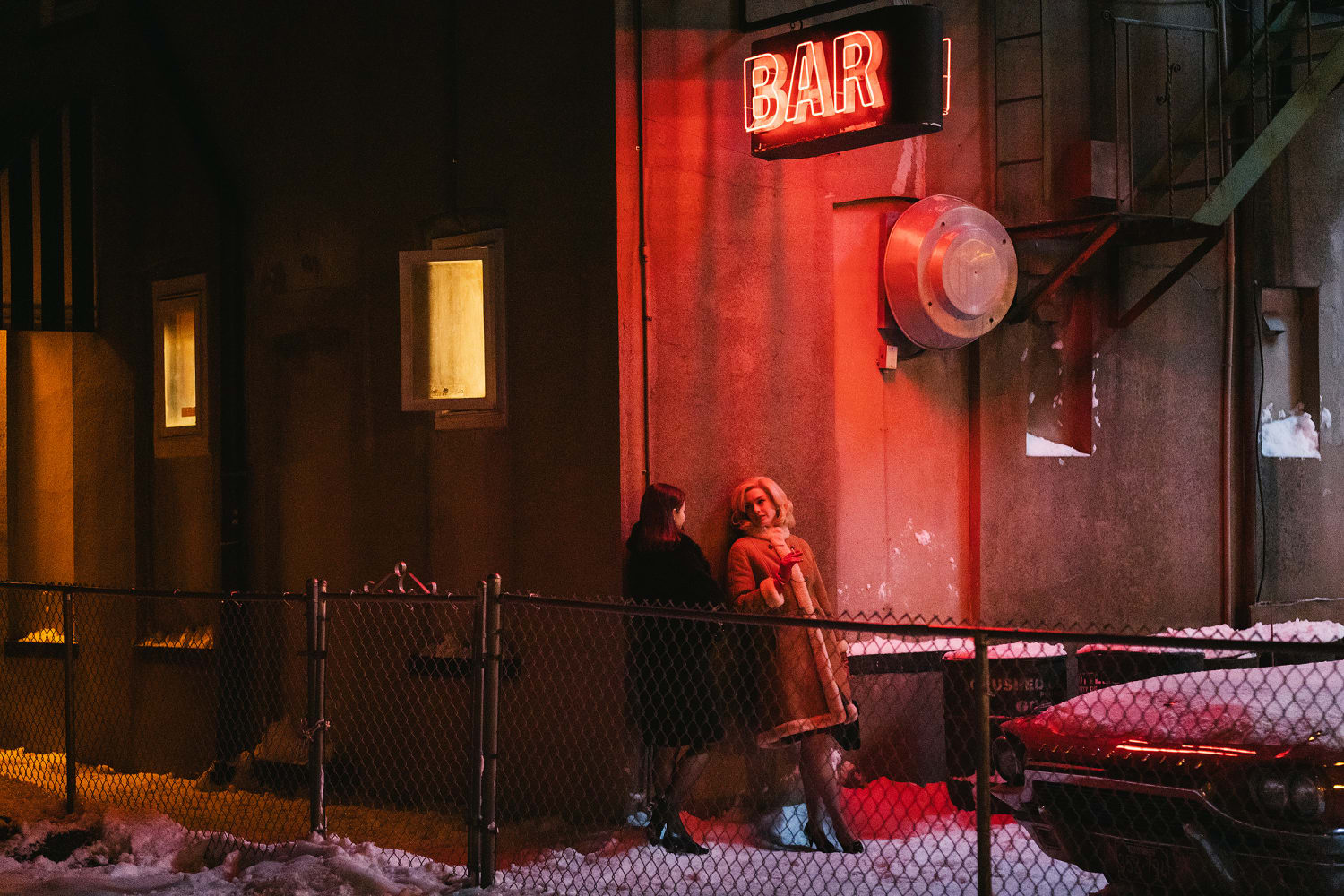The Oscar-winning actress explains to EW the ending of her new movie ‘Eileen’ with a mind-bending theory about her character.
Warning: This article contains spoilers for Eileen.
Alone, drifting through the brisk winter air. That’s just how Anne Hathaway’s Rebecca Saint John leaves Thomasin McKenzie’s titular Eileen amid the shocking ending of director William Oldroyd’s big-screen adaptation of writer Otessa Moshfegh’s 2015 novel.
But, as the Oscar-winning actress tells EW, there might be a pretty good explanation (one that might surprise you) for why the film’s ending plays out as chilly as the 1960s small town its characters inhabit.
After forming an intimate bond throughout the beginning of the movie, prison secretary Eileen (McKenzie) and psychologist Rebecca (Hathaway) form an intimate bond, all while the latter probes into a case that’s plagued the locals for years; a young man, Lee Polk, was incarcerated after stabbing his father to death, and his presence at the jail mystifies and intrigues both women.
The film’s climax sees Rebecca luring Eileen to her home, which, in a stunning twist, turns out to be the Polk household Rebecca has broken into. She tells Eileen that she has Rita Polk (Marin Ireland, in a bone-chilling performance) tied up in the basement, and the pair descend to the cellar to confront Rita about the real reason why Lee killed his father.
Anne Hathaway and Thomasin McKenzie in ‘Eileen’.
NEON
Rita tells Eileen and Rebecca, who force the story out of her at gunpoint, that her son was the victim of 𝑠e𝑥ual abuse. Lee’s father would regularly rape his son throughout the night, though Rita didn’t put a stop to it because it reignited a 𝑠e𝑥ual energy in her husband that he would carry over to her once he left Lee’s room and climbed into his wife’s bed.
Amid the revelation (and in a notable shift from the book’s narrative), Eileen shoots Rita, though the bullet doesn’t kill her. Thinking quickly, Rebecca and Eileen shove a deadly dose of pills into the wounded woman’s mouth, and she dies. Eileen then hatches a plan to run away with Rebecca, telling her companion that they can stage Rita’s body near Eileen’s home as to frame Eileen’s violently alcoholic father (Shea Whigham) for murder. Rebecca tells Eileen she likes the plan, and that she’ll meet her at Eileen’s home, after which they’ll run away to New York City together.

However, Rebecca doesn’t follow through with her end of the bargain and disappears, prompting Eileen to run off on her own. She ditches Rita’s body in a car in the middle of the woods before hitchhiking off into the distance.
“It’s a little suspicious how perfect she is, right?” Hathaway says of the final choice made by Rebecca. She suggests (or maybe doesn’t) that her character is actually a figment of Eileen’s escapist imagination, what with her eye-catching blonde hair, chic fashions, and dreamlike air that starkly contrasts the drab suburban surroundings around her. “Will and I talked a lot about how it was very important that, once you understand what the shape of the film is, it take on a different dimension than you thought you were looking at. You thought you were watching something literal, but maybe it’s not.”
Anne Hathaway and Thomasin McKenzie in ‘Eileen’.
EVERETT COLLECTION
She says that the film must be considered through the lens of Eileen as an “unreliable narrator,” noting how they “leaned into the perspective of the book without referencing the perspective of the book,” which was Eileen recounting this to herself many years later.
In the end, Hathaway says, “It doesn’t matter what really happened [because] this is the story that Eileen has. It’s the firsthand account of it; it doesn’t mean that it’s necessarily true.”
She finishes her thought with a playful tease.
“It’s like she just stepped out of a movie, right? Have you ever met anyone like Rebecca?” she asks, later speaking one final time to Rebecca’s existence. “We’ll never know,” she says. “The only person we can ask is Eileen.”
Eileen is now playing in theaters nationwide.






